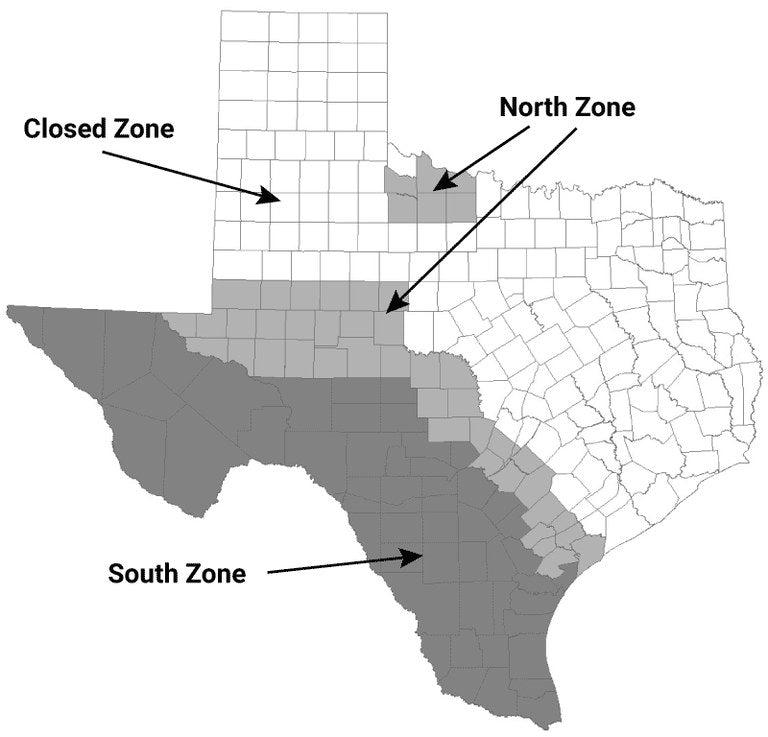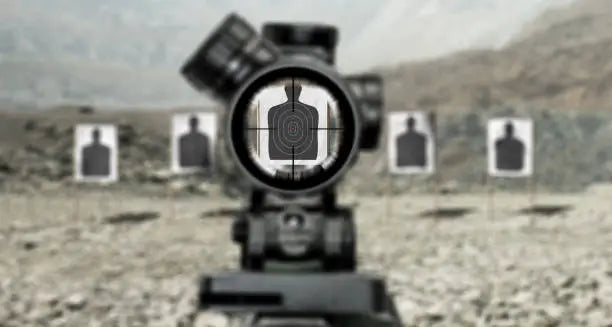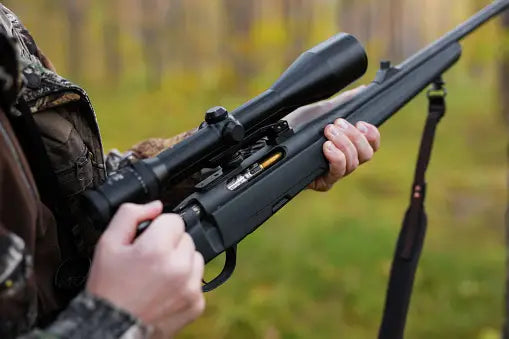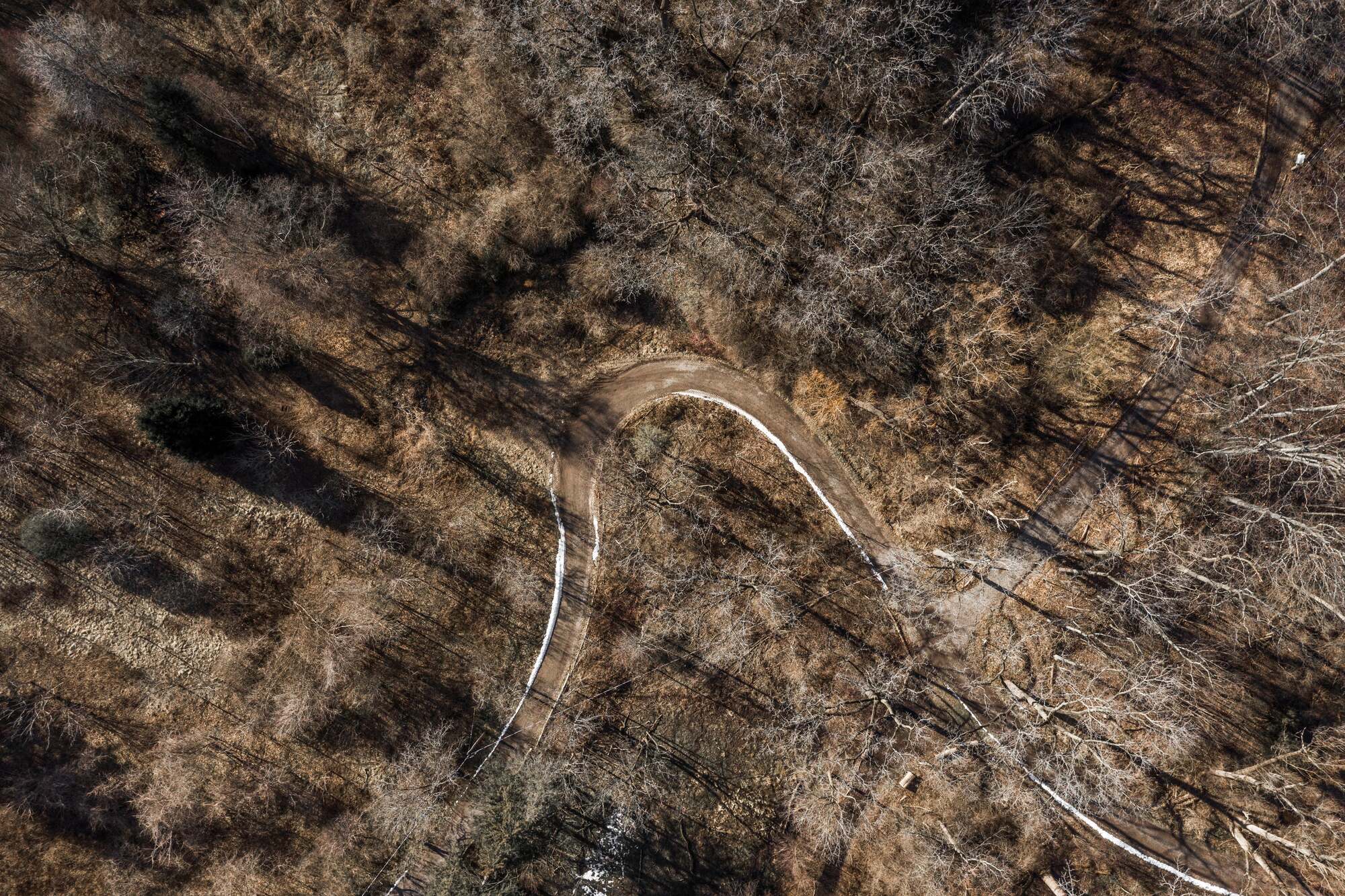Texas Parks & Wildlife released the 2024 – 2025 Texas Hunting Season dates. Check them out below.
In Texas, species of conservation concern may be classified as threatened or endangered under state law or the U.S. Endangered Species Act (ESA). It is illegal to hunt these species. Selling or purchasing goods made from them requires proper documentation. For more details, see the list of threatened and endangered species in Texas.
Game Animals
Javelina
Mule Deer
Pronghorm
White-tailed Deer
Upland Game Birds
Chachalaca
Pheasant
Quail
Wild Turkey
Migratory Game Bird
Duck
Dove
Woodcock Hunting
Goose
Rails, Gallinules & Moorhens Hunting
Sandhill Cranes Hunting
Snipe Common
Teal Hunting
Other Animals & Regulations
Nongame Species
A hunting license is required to hunt nongame species, which have no closed seasons, bag, or possession limits. They can be hunted anytime using lawful methods on private property. Some species may have specific restrictions, and public hunting lands may impose additional rules. If hunting at night, consider notifying your local game warden as a courtesy.
Unlawful Activities for Nongame Wildlife
It is illegal to:
- Take nongame species from public lands or waters for commercial purposes.
- Possess armadillos for sale.
- Buy, sell, trade, or transport bobcat pelts out of state without a proper CITES pelt tag, which must be attached before transport. Tags are available from authorized dealers or TPWD offices.
- Transport or sell live coyotes due to a statewide rabies quarantine (see the DSHS website for details).
- Possess diamondback terrapins.
- Hunt or take wild animals or birds on public roads or rights-of-way, except for reptiles and amphibians for recreational purposes with a valid Reptile and Amphibian Endorsement. Non-lethal means must be used, and the individual must wear 144 square inches of reflective material. Artificial light from a motor vehicle is prohibited.
- Collect, sell, or trade certain species, such as rattlesnakes, without a nongame permit and proper documentation.
- Take or possess freshwater turtles from the wild for commercial purposes or possess more than six individuals of any species.
- Sell rattlesnakes at roundups without a nongame permit.
- Hold a live mountain lion in a trap for more than 36 hours or in a snare exceeding a 10-inch loop for over 36 hours.
For more details on regulations and permits, contact TPWD at (800) 792-1112 (menu 7) or (512) 389-4481, or visit the Nongame Permits page.
Endangered, Threatened and Other Protected Animals
Protected Birds
All indigenous birds, including raptors and songbirds, are protected by state and federal laws. It is illegal to kill, remove from nests, possess, or sell them or their feathers, except for species listed as unprotected or exotic. Arts and crafts cannot include these species. A federal depredation permit may be issued if protected wildlife causes significant damage to agriculture or poses a public safety threat. For details, visit the U.S. Fish and Wildlife Service website.
Bats
Bats cannot be hunted, killed, possessed, bought, or sold. However, they may be removed or killed if found in or on buildings occupied by people. Transportation for rabies or white-nosed syndrome (WNS) testing is permitted. Avoid excluding bats from buildings between May 1 and August 15 to prevent trapping young bats. Report suspected WNS cases to TPWD by email.
Black Bears
Black bears are state-threatened and fully protected. Hunting or killing them is prohibited. Report sightings or mortalities to TPWD at (512) 389-4505. For safety guidelines, visit the TPWD website.
“Canned Hunts”
Hunting mountain lions in captivity or releasing them for hunting or training is prohibited. It is also illegal to hunt dangerous wild animals (e.g., lions, tigers, bears, wolves, or hybrids) in captivity or after their release for hunting purposes. Promoting, advertising, or assisting such activities is strictly forbidden.
Non-Protected and/or Exotic Species
Exotic Animals and Fowl
On private property, there are no specific hunting restrictions for exotic animals or fowl, including bag limits, hunting hours, or seasons. A valid hunting license is required.
Exotic Animals:
Includes species not native to Texas, such as aoudad sheep, axis deer, elk, sika deer, fallow deer, red deer, blackbuck, and nilgai antelope.
Exotic Fowl:
Includes non-native avian species not protected by the Migratory Bird Treaty Act, such as emus, ostriches, and cassowaries.
Unlawful Activities:
- Hunting exotics without a valid hunting license (Class C misdemeanor).
- Hunting exotics on public roads or rights-of-way (Class A misdemeanor).
- Hunting exotics without the landowner's permission (Class A misdemeanor).
- Possessing an exotic animal or carcass without the owner's consent (Class A misdemeanor).
Feral Hogs and Coyotes
- Hunter Education requirements apply.
- No hunting license is required to hunt feral hogs or depredating coyotes on private property with landowner authorization.
- Transporting or releasing live feral hogs is prohibited unless in compliance with TAHC regulations. For details, contact TAHC at (800) 550-8242 or visit their website.
Mountain Lions
Mountain lions are nongame animals and can be hunted anytime. Report sightings or harvests to TPWD at (512) 389-4505. New reporting features will soon be available in the Texas Hunt & Fish app.
Unprotected Birds
Birds not protected by state or federal laws include European starlings, English sparrows, feral rock doves, Egyptian geese, Muscovy ducks (except in certain counties), and Eurasian collared-doves. These birds, their nests, or eggs may be destroyed, and their feathers possessed. A hunting license is required.







